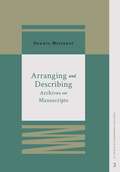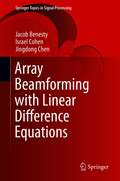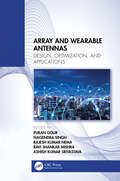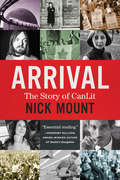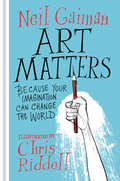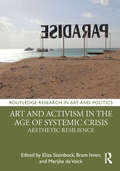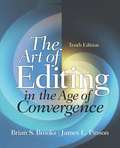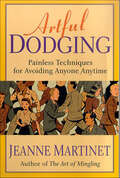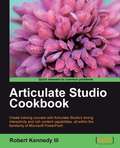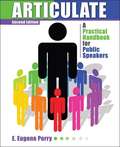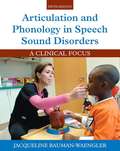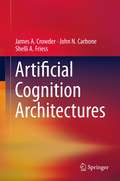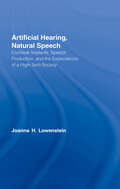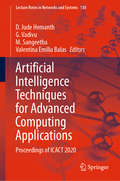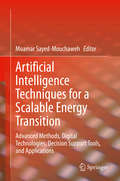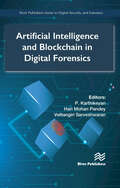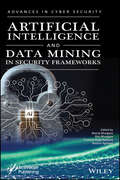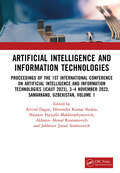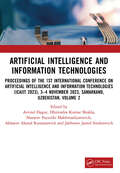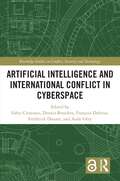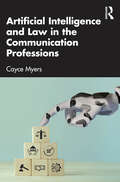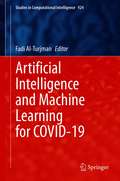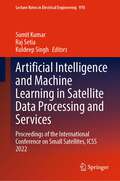- Table View
- List View
Arranging Stories: Framing Social Commentary in Short Story Collections by Southern Women Writers
by Heather A. FoxBetween the 1880s and the 1940s, opportunities for southern white women writers increased dramatically, bolstered by readers’ demands for southern stories in northern periodicals. Confined by magazine requirements and social expectations, writers often relied on regional settings and tropes to attract publishers and readers before publishing work in a collection. Selecting and ordering magazine stories for these collections was not arbitrary or dictated by editors, despite a male-dominated publishing industry. Instead, it allowed writers to privilege stories, or to contextualize a story by its proximity to other tales, as a form of social commentary. For Kate Chopin, Ellen Glasgow, Marjorie Kinnan Rawlings, and Katherine Anne Porter—the authors featured in this book—publishing a volume of stories enabled them to construct a narrative framework of their own. Arranging Stories: Framing Social Commentary in Short Story Collections by Southern Women Writers is as much about how stories are constructed as how they are told. The book examines correspondence, manuscripts, periodicals, and first editions of collections. Each collection’s textual history serves as a case study for changes in the periodical marketplace and demonstrates how writers negotiated this marketplace to publish stories and garner readership. The book also includes four tables, featuring collected stories’ arrangements and publication histories, and twenty-five illustrations, featuring periodical publications, unpublished letters, and manuscript fragments obtained from nine on-site and digital archives. Short story collections guide readers through a spatial experience, in which both individual stories and the ordering of those stories become a framework for interpreting meaning. Arranging Stories invites readings that complicate how we engage collected works.
Arranging and Describing Archives and Manuscripts
by Dennis MeissnerArrangement and description lie at the very heart of the archival endeavor. While all archival functions are crucial and interdependent, arrangement and description transform the potential value of materials into practical, usable value for researchers and others. In this book, the author provides a solid foundation in the history, theory, and standards supporting arrangement and description. In addition, he clearly demonstrates the approaches, methods, and mechanics required to process archival collections. The processing landscape has changed considerably in the last decade: archivists focus more on the economics of processing, descriptive standards have matured and increased in number, new technologies and viewpoints have challenged long-standing assumptions, and evolving systems and software have changed the mechanics of metadata capture and serialization and our approaches to those fundamental processes. This is a must-read book for every archivist practicing today.
Array Beamforming with Linear Difference Equations (Springer Topics in Signal Processing #20)
by Jacob Benesty Jingdong Chen Israel CohenThis book studies the link between differential beamforming and differential equations which in turn enables the study of fundamental theory and methods of beamforming from a different perspective, leading to new insights into the problem and new methods to solve the problem. The book first presents a brief overview of the problems and methods for beamforming and some performance measures popularly used either to evaluate beamformers or to derive optimal beamformers. Then, first-order, second-order, and general high-order linear difference equations are discussed, based on which the authors show how to formulate the beamforming problem and derive different beamforming methods, including fixed and adaptive ones. Furthermore, the authors show how to apply the theory of difference equations to the general problem of speech enhancement, and deduce a number of noise reduction filters, including the maximum SNR filter, the Wiener filter, the MVDR filter, etc. Also covered in the book are the difference equations and differential beamforming from the spectral graph perspective.Presents basic concepts, fundamental principles, and methods for beamforming from the perspective of linear difference equations;Provides formulation and methods of conventional beamforming, and first-order, second-order, and general high-order linear difference equations for beamforming;Includes the applications of linear difference equations to the problem of noise reduction;Explains beamforming based on difference equations with graphs.
Array and Wearable Antennas: Design, Optimization, and Applications
by Nagendra Singh Ashish Kumar Srivastava Puran Gour Rajesh Kumar Nema Ravi Shankar MishraThe text highlights the designing of efficient, wearable, and textile antennas for medical and wireless applications. It further discusses antenna design for the Internet of Things, biomedical, and 5G applications. The book presents machine learning and deep learning techniques for antenna design and analysis. It also covers radio frequency, micro-electromechanical systems, and nanoelectromechanical systems devices for smart antenna design.This book: Explores wearable reconfigurable antennas for wireless communication and provide the latest technique in term of its structure, defective ground plane, and fractal design Focuses on current and future technologies related to antenna design, and channel characterization for different communication links, and applications Discusses machine learning techniques for antenna design and analysis Demonstrates how nano patch antenna resonates at multiple frequencies by varying the chemical potential Covers the latest antenna technology for microwave sensors, and for fiber optical sensor communications It is primarily for senior undergraduate, graduate students, and academic researchers in the fields of electrical engineering, electronics and communications engineering.
Arrival: The Story of CanLit
by Nick Mount“The most important book to be written in more than 40 years about the rise of Canadian literature… Arrival: The Story of CanLit brims and crackles, in equal measure, with information and energy.” — Winnipeg Free PressA Globe and Mail Top 100 BookNational Post 99 Best Books of the YearIn the mid-twentieth century, Canadian literature transformed from a largely ignored trickle of books into an enormous cultural phenomenon that produced Margaret Atwood, Alice Munro, Michael Ondaatje, Mordecai Richler, and so many others. In Arrival, acclaimed writer and critic Nick Mount answers the question: What caused the CanLit Boom?Written with wit and panache, Arrival tells the story of Canada’s literary awakening. Interwoven with Mount’s vivid tale are enlightening mini-biographies of the people who made it happen, from superstars Leonard Cohen and Marie-Claire Blais to lesser-known lights like the troubled and impassioned Harold Sonny Ladoo. The full range of Canada’s literary boom is here: the underground exploits of the blew ointment and Tish gangs; revolutionary critical forays by highbrow academics; the blunt-force trauma of our plain-spoken backwoods poetry; and the urgent political writing that erupted from the turmoil in Quebec.Originally published to coincide with the 150th anniversary of Canadian Confederation, Arrival is a dazzling, variegated, and inspired piece of writing that helps explain how we got from there to here.
Art Matters: Because Your Imagination Can Change the World (Apple FF)
by Neil Gaiman Chris RiddellA stunning and timely creative call-to-arms combining four extraordinary written pieces by Neil Gaiman illustrated with the striking four-color artwork of Chris Riddell.“The world always seems brighter when you’ve just made something that wasn’t there before.”—Neil GaimanDrawn from Gaiman’s trove of published speeches, poems, and creative manifestos, Art Matters is an embodiment of this remarkable multi-media artist’s vision—an exploration of how reading, imagining, and creating can transform the world and our lives.Art Matters bring together four of Gaiman’s most beloved writings on creativity and artistry: “Credo,” his remarkably concise and relevant manifesto on free expression, first delivered in the wake of the Charlie Hebdo shootings“Make Good Art,” his famous 2012 commencement address delivered at the Philadelphia University of the Arts“Making a Chair,” a poem about the joys of creating something, even when words won’t come“On Libraries,” an impassioned argument for libraries that illuminates their importance to our future and celebrates how they foster readers and daydreamersFeaturing original illustrations by Gaiman’s longtime illustrator, Chris Riddell, Art Matters is a stirring testament to the freedom of ideas that inspires us to make art in the face of adversity, and dares us to choose to be bold.
Art Of Protest: Creating, Discovering, And Activating Art For Your Revolution
by De NicholsFrom Keith Haring to Extinction Rebellion, the civil rights movement to Black Lives Matter, what does a revolution look like? Discover the power of words and images in this thought-provoking look at protest art by highly acclaimed artivist De Nichols. From the psychedelic typography used in "Make Love Not War" posters of the '60s to the solitary raised fist, some of the most memorable and striking protest artwork from across the world and throughout history deserves a long, hard look. Readers can explore each piece of art to understand how color, symbolism, technique, and typography play an important role in communication. Guided by activist, lecturer, and speaker De Nichols's powerful narrative and stunningly illustrated by a collaboration of young artists, this volume also has plenty of tips and ideas for creating your own revolutionary designs. This is a fully comprehensive look at the art of protest.
Art and Activism in the Age of Systemic Crisis: Aesthetic Resilience (Routledge Research in Art and Politics)
by Marijke De Valck Eliza Steinbock Bram IevenThis book examines how renewed forms of artistic activism were developed in the wake of the neoliberal repression since the 1980s. The volume shows the diverse ways in which artists have sought to confront systemic crises around the globe, searching for new and enduring forms of building communities and reimagining the political horizon. The authors engage in a dialogue with these artistic efforts and their histories – in particular the earlier artistic activism that was developed during the civil rights era in the 1960s and 70s – providing valuable historical insight and new conceptual reflection on the future of aesthetic resilience. This book will be of interest to scholars in contemporary art, history of art, film and literary studies, protest movements, and social movements.
Art of Editing, The (Subscription)
by Brian S. Brooks L. Pinson JamesThe Art of Editing continues to be the standard by which editing texts are judged, offering the most comprehensive and up-to-date discussion of editing available. Long viewed as the "classic" in the field of editing, The Art of Editing continues to evolve to meet the needs of today's students. In addition to a focus on traditional newspaper editing, the authors pay significant attention to the other areas in which students are increasingly finding jobs: online media, corporate magazines, broadcasting, public relations and advertising. The ninth edition of The Art of Editing details the major changes revolutionizing the media industry and prepares students to work in convergent environments, where skill in print, broadcast and online operations is essential.
Artful Dodging: Painless Techniques for Avoiding Anyone Anytime
by Jeanne MartinetA lighthearted and indispensable guide to gracefully side-stepping anyone, by the author of The Art of MinglingWhether you're dodging an overbearing boss, the chatty guy next to you on an overcrowded flight, your least favorite client, your least favorite parent, or anyone else, this lighthearted, indispensable guide will show you how to make a seamless, effective escape.The perfect guide for our over-committed, hectic times, Artful Dodging puts an end to all those feeble excuses no one ever believes. It banishes, once and for all, the notion of an invitation you can't refuse. In an almost Kryptonite-like fashion, it helps to break the vice of social obligation that has so many of us in its grip. Yes, it's true: Artful Dodging can set you free.Topics include: the pros and cons of using a Classic Excuse * mastering the Duck and Cover * using voice mail, Call Waiting, and other telephone techniques * emergency escape tactics * flattery, melodrama, and other dodging diversions * vanishing into thin air * and much more.For everyone who's mastered the art of making friends and now needs to improve at shaking them, Artful Dodging comes to the rescue, with humor, smarts, and a great exit line.
Articulate Studio Cookbook
by Robert Kennedy IIIThe cookbook style is a series of practical recipes which represent solutions to problems and popular activities in a concise but detailed manner. If you are a beginning developer or just someone who has been asked to be the jack-of-all-design in your training department, then this book is a great starter. Having a working knowledge of PowerPoint is helpful but not essential. By simply following the steps, you will be able to create a clean, professional looking course.
Articulate! A Handbook for Public Speakers (2nd Edition)
by E. Eugene PerryArticulate focuses on practical applications on public speaking. It enables students to improve their skills through assignments.
Articulation and Phonology In Speech Sound Disorders: A Clinical Focus
by Jacqueline Bauman-WaenglerThis comprehensive book ties strong academic foundations directly to their clinical application for speech/language therapists working with speech sound disorders. Each chapter presents tools to help readers bridge the gap between theoretical issues and clinical applications by presenting Clinical Applications, Clinical Exercises, Case Studies, and a section called Think Critically, which asks students to further apply specific clinical concepts. Test Yourself multiple choice questions appear at the end of each chapter and are ideal for review and assessment of the knowledge presented in the chapters, and Further Readings allow readers to continue to expand their knowledge. The new Fifth Edition of Articulation and Phonology in Speech Sound Disorders reflects the current use of the term "speech sound disorder," an umbrella term for what was previously noted as articulation- and phonemic-based disorders.
Artificial Cognition Architectures
by Shelli Friess John N. Carbone James CrowderThe goal of this book is to establish the foundation, principles, theory, and concepts that are the backbone of real, autonomous Artificial Intelligence. Presented here are some basic human intelligence concepts framed for Artificial Intelligence systems. These include concepts like Metacognition and Metamemory, along with architectural constructs for Artificial Intelligence versions of human brain functions like the prefrontal cortex. Also presented are possible hardware and software architectures that lend themselves to learning, reasoning, and self-evolution
Artificial Hearing, Natural Speech: Cochlear Implants, Speech Production, and the Expectations of a High-Tech Society (Outstanding Dissertations in Linguistics)
by Joanna Hart LowensteinThis book explores the interface between speech perception and production through a longitudinal acoustic analysis of the speech of postlingually deaf adults with cochlear implants (electrode and computer prostheses for the inner ear in cases of nerve deafness). The methodology is based on the work of Joseph Perkell at MIT, replicating and extending analysis to subjects with modern digital cochlear implants and processor technology. Lowenstein also examines how cochlear implants are portrayed in dramatic and documentary television programs, the scientific accuracy of those portrayals, and what expectations might be taken away by viewers, particularly given modern society's view that technology can overcome the frailties of the human body.
Artificial Intelligence Techniques for Advanced Computing Applications: Proceedings of ICACT 2020 (Lecture Notes in Networks and Systems #130)
by Valentina Emilia Balas D. Jude Hemanth G. Vadivu M. SangeethaThis book features a collection of high-quality research papers presented at the International Conference on Advanced Computing Technology (ICACT 2020), held at the SRM Institute of Science and Technology, Chennai, India, on 23–24 January 2020. It covers the areas of computational intelligence, artificial intelligence, machine learning, deep learning, big data, and applications of artificial intelligence in networking, IoT and bioinformatics
Artificial Intelligence Techniques for a Scalable Energy Transition: Advanced Methods, Digital Technologies, Decision Support Tools, and Applications
by Moamar Sayed-MouchawehThis book presents research in artificial techniques using intelligence for energy transition, outlining several applications including production systems, energy production, energy distribution, energy management, renewable energy production, cyber security, industry 4.0 and internet of things etc. The book goes beyond standard application by placing a specific focus on the use of AI techniques to address the challenges related to the different applications and topics of energy transition. The contributions are classified according to the market and actor interactions (service providers, manufacturers, customers, integrators, utilities etc.), to the SG architecture model (physical layer, infrastructure layer, and business layer), to the digital twin of SG (business model, operational model, fault/transient model, and asset model), and to the application domain (demand side management, load monitoring, micro grids, energy consulting (residents, utilities), energy saving, dynamic pricing revenue management and smart meters, etc.).
Artificial Intelligence and Blockchain in Digital Forensics (River Publishers Series in Digital Security and Forensics)
by P. Karthikeyan Hari Mohan Pandey Velliangiri SarveshwaranDigital forensics is the science of detecting evidence from digital media like a computer, smartphone, server, or network. It provides the forensic team with the most beneficial methods to solve confused digital-related cases. AI and blockchain can be applied to solve online predatory chat cases and photo forensics cases, provide network service evidence, custody of digital files in forensic medicine, and identify roots of data scavenging. The increased use of PCs and extensive use of internet access, have meant easy availability of hacking tools. Over the past two decades, improvements in the information technology landscape have made the collection, preservation, and analysis of digital evidence extremely important. The traditional tools for solving cybercrimes and preparing court cases are making investigations difficult. We can use AI and blockchain design frameworks to make the digital forensic process efficient and straightforward. AI features help determine the contents of a picture, detect spam email messages and recognize swatches of hard drives that could contain suspicious files. Blockchain-based lawful evidence management schemes can supervise the entire evidence flow of all of the court data. This book provides a wide-ranging overview of how AI and blockchain can be used to solve problems in digital forensics using advanced tools and applications available on the market.
Artificial Intelligence and Data Mining Approaches in Security Frameworks (Advances in Data Engineering and Machine Learning)
by Rashmi Agrawal Pramod Singh Rathore Neeraj Bhargava Ritu BhargavaArtificial intelligence (AI) and data mining is the fastest growing field in computer science. AI and data mining algorithms and techniques are found to be useful in different areas like pattern recognition, automatic threat detection, automatic problem solving, visual recognition, fraud detection, detecting developmental delay in children, and many other applications. However, applying AI and data mining techniques or algorithms successfully in these areas needs a concerted effort, fostering integrative research between experts ranging from diverse disciplines from data science to Artificial Intelligence. Successful application of security frameworks to enable meaningful, cost effective, personalize security service is a primary aim of engineers and researchers today. However realizing this goal requires effective understanding, application and amalgamation of AI and Data Mining and several other computing technologies to deploy such system in an effective manner. This book provides state of the art approaches of artificial intelligence and data mining in these areas. It includes areas of detection, prediction, as well as future framework identification, development, building service systems and analytical aspects. In all these topics, applications of AI and data mining, such as artificial neural networks, fuzzy logic, genetic algorithm and hybrid mechanisms, are explained and explored. This book is aimed at the modeling and performance prediction of efficient security framework systems, bringing to light a new dimension in the theory and practice. This groundbreaking new volume presents these topics and trends, bridging the research gap on AI and data mining to enable wide-scale implementation. Whether for the veteran engineer or the student, this is a must-have for any library.
Artificial Intelligence and Information Technologies: Proceedings of the 1st International Conference on Artificial Intelligence and Information Technologies (ICAIIT 2023), 3–4 November 2023, Samarkand, Uzbekistan, Volume 1
by Arvind Dagur Dhirendra Kumar Shukla Nazarov Fayzullo Makhmadiyarovich Akhatov Akmal Rustamovich Jabborov Jamol SindorovichThis book contains the proceedings of a non-profit conference with the objective of providing a platform for academicians, researchers, scholars and students from various institutions, universities and industries in India and abroad, and exchanging their research and innovative ideas in the field of Artificial Intelligence and Information Technologies.It begins with exploring the research and innovation in the field of Artificial Intelligence and Information Technologies including secure transaction, monitoring, real time assistance and security for advanced stage learners, researchers and academicians has been presented. It goes on to cover: Broad knowledge and research trends about artificial intelligence and Information Technologies and their role in today’s digital era. Depiction of system model and architecture for clear picture of AI in real life. Discussion on the role of Artificial Intelligence in various real-life problems such as banking, healthcare, navigation, communication, security, etc. Explanation of the challenges and opportunities in AI based Healthcare, education, banking, and related Industries. Recent Information technologies and challenges in this new epoch. This book will be beneficial to researchers, academicians, undergraduate students, postgraduate students, research scholars, professionals, technologists and entrepreneurs.
Artificial Intelligence and Information Technologies: Proceedings of the 1st International Conference on Artificial Intelligence and Information Technologies (ICAIIT 2023), 3–4 November 2023, Samarkand, Uzbekistan, Volume 2
by Arvind Dagur Dhirendra Kumar Shukla Nazarov Fayzullo Makhmadiyarovich Akhatov Akmal Rustamovich Jabborov Jamol SindorovichThis book contains the proceedings of a non-profit conference with the objective of providing a platform for academicians, researchers, scholars and students from various institutions, universities and industries in India and abroad, and exchanging their research and innovative ideas in the field of Artificial Intelligence and Information Technologies.It begins with exploring the research and innovation in the field of Artificial Intelligence and Information Technologies including secure transaction, monitoring, real time assistance and security for advanced stage learners, researchers and academicians has been presented. It goes on to cover: Broad knowledge and research trends about artificial intelligence and Information Technologies and their role in today’s digital era. Depiction of system model and architecture for clear picture of AI in real life. Discussion on the role of Artificial Intelligence in various real-life problems such as banking, healthcare, navigation, communication, security, etc. Explanation of the challenges and opportunities in AI based Healthcare, education, banking, and related Industries. Recent Information technologies and challenges in this new epoch. This book will be beneficial to researchers, academicians, undergraduate students, postgraduate students, research scholars, professionals, technologists and entrepreneurs.
Artificial Intelligence and International Conflict in Cyberspace (Routledge Studies in Conflict, Security and Technology)
by Frédérick Douzet François Delerue Fabio Cristiano Dennis Broeders Aude GéryThis edited volume explores how artificial intelligence (AI) is transforming international conflict in cyberspace. Over the past three decades, cyberspace developed into a crucial frontier and issue of international conflict. However, scholarly work on the relationship between AI and conflict in cyberspace has been produced along somewhat rigid disciplinary boundaries and an even more rigid sociotechnical divide – wherein technical and social scholarship are seldomly brought into a conversation. This is the first volume to address these themes through a comprehensive and cross-disciplinary approach. With the intent of exploring the question ‘what is at stake with the use of automation in international conflict in cyberspace through AI?’, the chapters in the volume focus on three broad themes, namely: (1) technical and operational, (2) strategic and geopolitical, and (3) normative and legal. These also constitute the three parts in which the chapters of this volume are organised, although these thematic sections should not be considered as an analytical or a disciplinary demarcation. This book will be of much interest to students of cyber-conflict, artificial intelligence, security studies and International Relations.
Artificial Intelligence and Law in the Communication Professions
by Cayce MyersThis book analyzes the current attempts to regulate artificial intelligence (AI) and its impact on the communication field.Examining existing and proposed laws, policies, and regulations of AI in the U.S. and the European Union, this book analyzes how the technological development of AI will be governed in the next decade and how this will impact the communication industry. Chapters explore the influence of laws on key communication issues including free speech, disinformation, intellectual property, privacy, and discrimination, as well as the AI industry’s approach to self-regulation. It shows how communication professionals such as public relations practitioners, advertisers, and journalists will be affected by generative AI content production and how communication will ultimately be shaped by the regulations and laws placed on AI.Providing readers with a working knowledge of the contemporary legal issues surrounding AI and communication, this book will be of interest to scholars and students in the fields of Media and Communication Law, Public Relations, Advertising, and Journalism.
Artificial Intelligence and Machine Learning for COVID-19 (Studies in Computational Intelligence #924)
by Fadi Al-TurjmanThis book is dedicated to addressing the major challenges in fighting COVID-19 using artificial intelligence (AI) and machine learning (ML) – from cost and complexity to availability and accuracy. The aim of this book is to focus on both the design and implementation of AI-based approaches in proposed COVID-19 solutions that are enabled and supported by sensor networks, cloud computing, and 5G and beyond. This book presents research that contributes to the application of ML techniques to the problem of computer communication-assisted diagnosis of COVID-19 and similar diseases. The authors present the latest theoretical developments, real-world applications, and future perspectives on this topic. This book brings together a broad multidisciplinary community, aiming to integrate ideas, theories, models, and techniques from across different disciplines on intelligent solutions/systems, and to inform how cognitive systems in Next Generation Networks (NGN) should be designed, developed, and evaluated while exchanging and processing critical health information. Targeted readers are from varying disciplines who are interested in implementing the smart planet/environments vision via wireless/wired enabling technologies.
Artificial Intelligence and Machine Learning in Satellite Data Processing and Services: Proceedings of the International Conference on Small Satellites, ICSS 2022 (Lecture Notes in Electrical Engineering #970)
by Sumit Kumar Kuldeep Singh Raj SetiaThis book, Artificial Intelligence and Machine Learning in Satellite: Data Processing and Services, presents the selected proceedings of the International Conference on Small Satellites (ICSS 2022) that aims to provide an opportunity for academicians, scientists, researchers, and industry experts, engaged in teaching, research, and development on satellite data processing and its services by employing advanced artificial intelligence-based machine learning techniques. This book covers the application of artificial intelligence and machine learning techniques in various domains of earth observations like natural resources and environmental management, water resources, urban and rural development, climate change, and other contemporary subjects. The book will surely be a valuable asset for beginners, researchers, and professionals working in satellite data processing and services using artificial intelligence and machine learning approaches.

